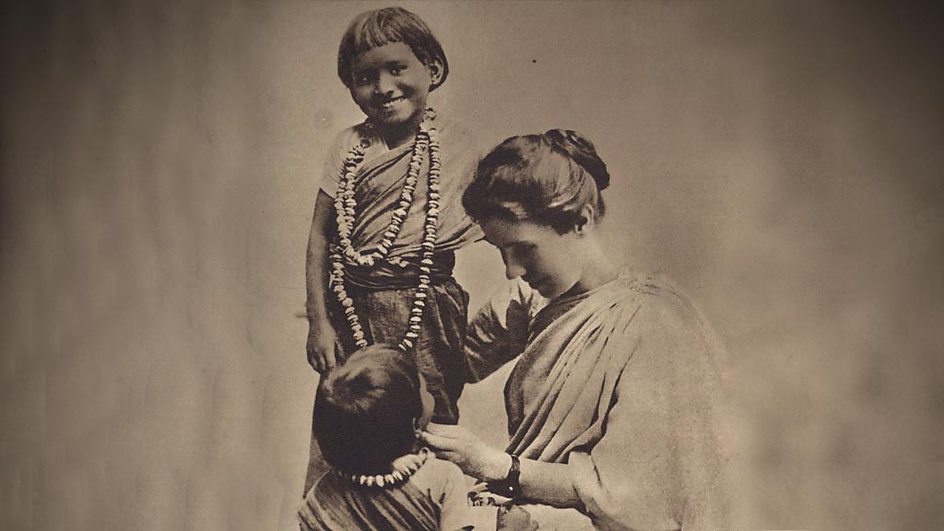Book Review: A Chance to Die | Four Truths Amy Carmichael Taught Me

I was eleven years old the first time I read Elisabeth Elliot’s A Chance to Die: The Life and Legacy of Amy Carmichael. I’d recently decided I wanted to work in missions and was consuming every missionary biography I could get my hands on. I hesitated before opening A Chance to Die, knowing that this would be no small undertaking. Little did I know that this book would inspire and challenge me like few others.
A Chance to Die tells the story of Amy Carmichael’s life and ministry. Elliot writes about experiences she and Amy Carmichael shared in their missionary journeys. Because of Elliot’s first-hand experience as a missionary, in subtle ways, we can see how Elliot disciples her readers by teaching them about real, honest, and messy missions.
Nothing Too Precious for Jesus
During her time in India, Amy ministered to people who would lose everything for the sake of Christ. Torture, isolation, loss of family, arranged marriage, and death were some of the costs her converts faced. Despite these costs, Amy knew that even if the worst happened, it would be a privilege to suffer for His name.
She was a fervent evangelist, not a hypocritical one. After all, she paid a high cost herself for following Jesus “‘Who can forget,’ wrote a clergyman, ‘Miss Amy Wilson-Carmichael’s farewell address, ere she left for her life of sacrifice in India, as she unrolled a ‘ribband of blue’ with the golden words, ‘Nothing too precious for Jesus?’” (110) Amy knew that every area of her life was worth giving to the Lord. Even through times of deep suffering, nothing was too precious to give to Jesus.
Missionary Life is not Romantic
Though mission work was then and can still be today overly romanticized or glamorized, Amy was determined to present mission work as it really is. She wrote a book called Things as They Are in which she detailed stories of her daily life. Many of these stories were difficult and discouraging. She writes, “‘It is important that you should know the reverses than about the successes of the war. We shall have all eternity to celebrate the victories, but we have only the few hours before sunset in which to win them.’” (161, 162)
Quite a few of her supporters and fellow workers were upset at her writing this! So what exactly did the missionary life offer? Here’s how Amy answered that question: a chance to die. She continued, “It offers a great deal of plowing and ploughing, with now and then a little planting. It is the promise of rejoicing, given to those who ‘go forth weeping, bearing precious seed’ that gives heart” (176). Her newsletters back home didn’t record stories of mass conversions and spontaneous baptisms, but “little” victories, demonstrating the power of everyday faithfulness.
Do Not Be a “Half-Hearted Missionary”
Amy worked among English missionaries who lived in bungalows, spoke English, and lived separately from the Indians. She also lived among those who “went to great lengths to make themselves as Indian, that is, as Hindu as possible” (127). Amy herself learned the culture and language while never compromising the gospel. This was not an easy task.
Many of her fellow missionaries were confused by her eagerness to live among the Indian people and her passion for learning the Tamil language. For many years, she lived and worked among those who were tempted to syncretism or were ethnocentric. She wrote later in her life, “’O to be delivered from half-hearted missionaries! Don’t come if you mean to turn aside for anything—for the ‘claims of society’ in the treaty ports and stations. Don’t come if you haven’t made up your mind to live to one thing—the winning of souls”(142).
Perseverance in Ministry
Amy spent many of her ministry days sick. She even had to move countries because of her illness. She felt discouragement at all the ways she was “put behind” because of it. The years of language learning were arduous and painful, especially while she experienced culture shock and fatigue from illness. Many were confused at Amy’s diligence, but Amy did not waver. She saw herself as a soldier and reminded her supporters that she was in a battle. When talking about the “warship of missionary life” Elliot said, “Experience had quickly taught her that she could not survive the storms without the anchor of the constraining love of Christ and what she called the ‘Rock-conciousness’ of the promise given her [that he] ‘goeth before’” (94).
Is anything in our life too precious for Jesus? Are we clinging to the things of this world? Are we “half-hearted” as believers? May we soldier on and persevere like Amy Carmichael. When I think of A Chance to Die, I think back to the eleven-year-old girl who first picked up this book, and I am thankful for all that Amy taught me.
Want More Content Like This?
We will deliver Reaching & Teaching articles and podcast episodes automatically to your inbox. It's a great way to stay on top of the latest news and resources for international missions and pastoral training.
